Motherhood during Coronavirus
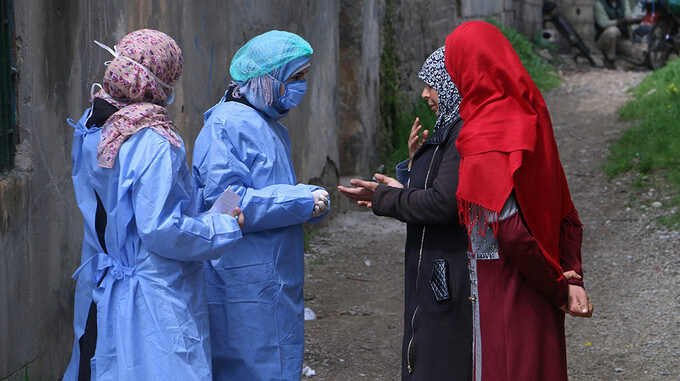
Update July 6, 2020: though UNFPA does not have any programming in the United States, American mothers still deserve care. New reporting from Propublica shows that a lack of U.S. research on the effects of coronavirus for pregnant women has put mothers and their babies at risk.
Becoming a mother can be a scary experience in the best of times, but motherhood during coronavirus comes with intense fear and safety concerns.
Every day, over 800 women die from pregnancy and childbirth complications. For each woman who dies, another 10-20 women experience debilitating infections or injuries.
While there have been huge advances in maternal health over the last 50 years that UNFPA has been operating, coronavirus threatens to turn back the clock. The pandemic has caused many women to grapple with limited access to midwives or other health professionals, food and job insecurity, and strained support networks.
Here are some of the ways in which moms are uniquely affected by the virus:
Prenatal check-ups
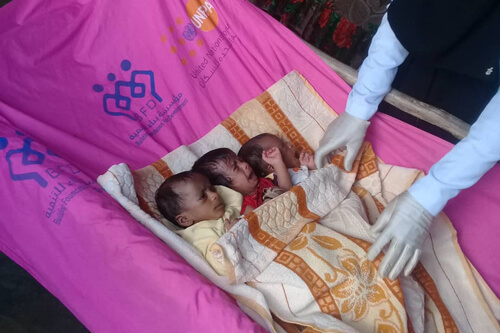
Prenatal care is essential for pregnant women who wish to have healthy pregnancies. Midwives are able to monitor conditions that may put the mother or her baby at risk, including preeclampsia or vitamin deficiencies.
However, as healthcare providers have transitioned into roles to help deal with COVID-19 and clinics have limited their hours and in-person availability, pregnant women have found it more difficult to access prenatal care.
Aisha, in Yemen, explained what motherhood during coronavirus was like for her, “We kept hearing on the television about a new virus called corona that is killing people in many countries. I was even scared to go to the hospital fearing this may affect my unborn child.”
This reality is even more concerning when factoring in the number of unintended pregnancies caused by coronavirus. UNFPA estimates that 7 million additional women will become pregnant over 6 months of lockdowns due to disruptions in family planning care.
Delivery care
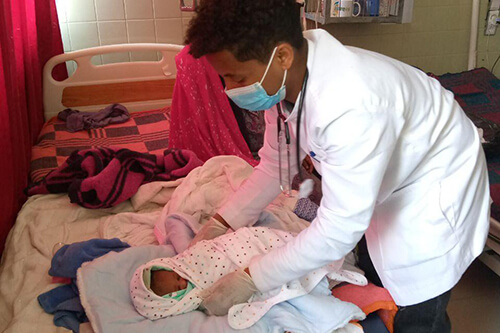
Similar to prenatal check-ups, many women are fearful of giving birth at hospitals because of coronavirus.
In Ethiopia, midwife Dawit has already seen a decrease in the number of women coming to the hospital for delivery care. Instead, many of these women are giving birth at home. In Ethiopia, 72% of women give birth at home. As a consequence, the country has a high maternal death rate. The presence of a skilled birth attendant during childbirth ensures that women receive adequate care for a safe delivery and that emergency obstetric care is available, if needed.
UNFPA has been strengthening prenatal and safe delivery care around the world, but especially in areas such as refugee camps where motherhood during coronavirus is especially dangerous. UNFPA has also distributed emergency birth kits, so when a woman can give birth safely, even if she’s alone.
Uncertainty around children and COVID-19
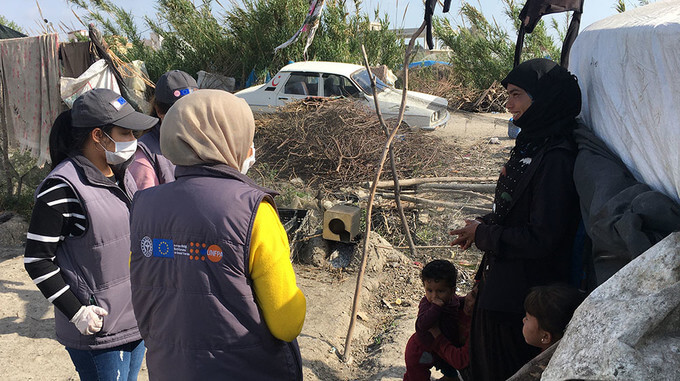
Though initially it appeared as though COVID-19 left children relatively unaffected, reports of children becoming sick or of being carriers of the virus have surfaced since the beginning of the outbreak. The uncertainty around children’s health has caused many parents to wonder how best they can care for their kids. For single parents or families in emergency situations, this is an even bigger question.
Meryem is a single mother to two young children. She migrated from Syria to a tent settlement in Turkey, where she is a migrant laborer. Her children never had their childhood vaccinations and the tent settlement offers little in the way of cleanliness. For Meryem, motherhood during coronavirus means worrying about her children becoming sick, as handwashing and social distancing are impossible there.
Through a UNFPA mobile health team, Meryem was able to receive a check-up and her children got their vaccinations. Now, Meryem feels better about the health of herself and her children knowing that UNFPA is there for them.
Extra cleaning and cooking burdens
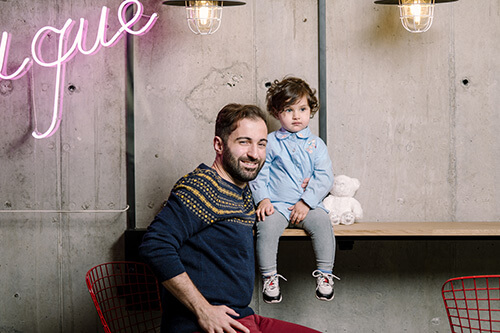
All over the world, countries have instituted stay-at-home orders and lockdowns to help prevent the spread of coronavirus. While these measures have been great from a public health standpoint, for many women, motherhood during coronavirus means increased household burdens.
Women are having to clean more often because of more time spent in the same spaces. They have to cook more often, with more people home during the day. And, many mothers are taking on teaching responsibilities as schools shut down or switch to remote education.
This is all in addition to their normal household work and, for many mothers, their normal jobs. Further, for women who live in abusive households, with increased violence comes in addition to these other burdens.
UNFPA has been advocating for men to step up as husbands and fathers for a long time. In Georgia, for example, UNFPA is spreading information about how fathers can be more involved in their children’s lives. In Ukraine and elsewhere, domestic violence has skyrocketed. UNFPA is strengthening women’s centers and hotlines for those who need sensitive and timely care.
Fear around food security or security of other goods
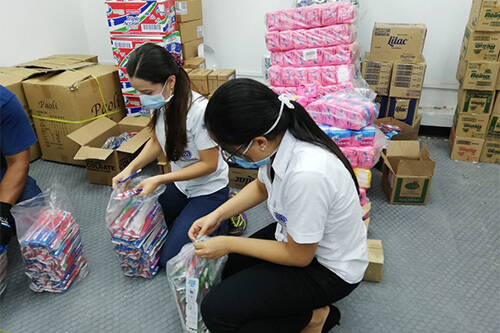
As the crisis continues, mothers everywhere worry about how they can keep their families healthy and safe.
Many families feel the strain of economic insecurity and wonder how they can continue to provide food, shelter, and medicines to their children. Women, in particular, face shortages of essential reproductive health supplies, like birth control medications, condoms, and menstrual hygiene products. Without such items, maintaining one’s health and dignity becomes much more difficult.
In El Salvador, UNFPA has distributed dignity kits to women in prison and to women in mandatory state quarantine centers. The kits contain supplies like menstrual pads, soap, and underwear, so that women can continue to care for themselves and their families.
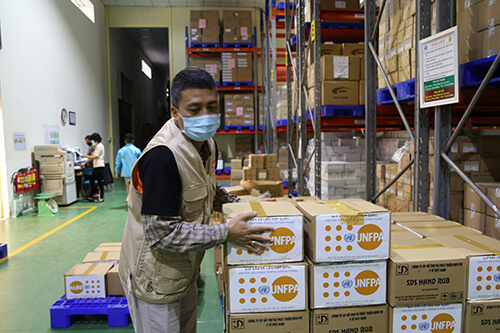
© UNFPA Philippines
COVID-19 has affected us all in unexpected ways. But, for many women, motherhood during coronavirus means taking on extra burdens, both inside and outside of the home.
Inside the home, women have performed the majority of household work, despite increased risks to their health and safety. Outside of the home, women make up 70% of the world’s healthcare workforce. Many of them are on the frontlines of this crisis.
UNFPA works to ensure that wherever a woman may be, she has the care and supplies she needs to ensure the health, safety, and dignity of herself and her family.
-Dana Kirkegaard